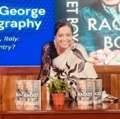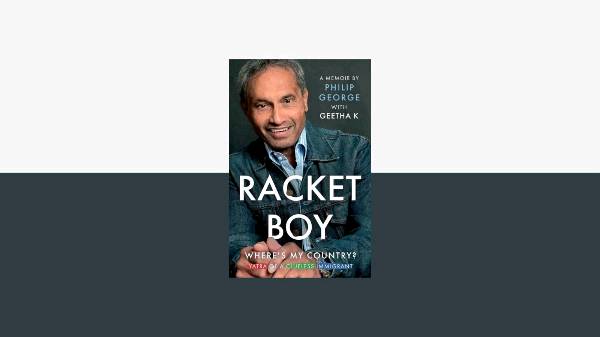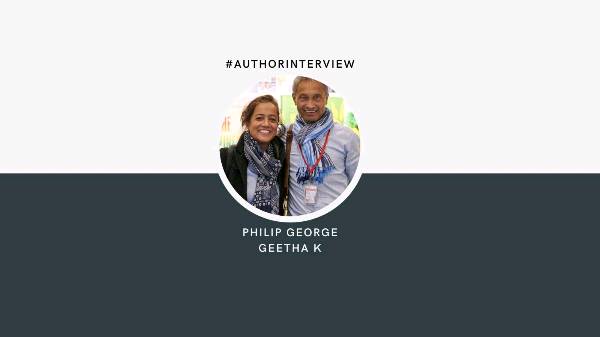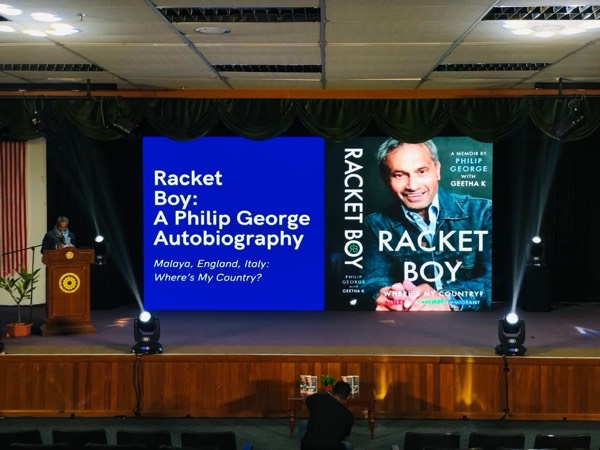#AskAnAuthor | In Conversation with Philip George & Geetha K, authors of 'Racket Boy: Where's My Country?'
Filled with his personal insights on migration, identity, and the universal quest for belonging, the book offers a deep exploration of one man's extraordinary life. Joining me today are the authors themselves, Philip George and Geetha K. Who will be talking about their collaborative process, the themes woven into the memoir, and the profound journey of sharing a deeply personal story with the world. Hello Philip and Geetha. Thank you so much for joining in
So, Philip, I'll start off with the first question for you. Your memoir span six decades of your life, from your roots in Kerala to your experiences in Malaysia and England, exploring themes of migration, identity, and belonging. Could you maybe talk a little bit about some pivotal moments or experiences from your personal journey that have shaped your understanding of home and belonging?

Philip George
@Hartono · 3:46
But then when Margaret Thatcher came into power in around 1979 onwards, I saw a decline in the english standards and also a rise in xenophobia and right wing thinking. And as I stayed longer there and gained knowledge, I realized I've got a problem with my identity there and found Italy and where I went and with it being a latino country and a spiritual and christian catholic place, I felt more at home in the Italian. Temperament and culture suited me much better now as to sense of belonging

Philip George
@Hartono · 3:57
And then when I got my a levels at night school, I managed to get my five year UK residence and then went back to the banking industry for a while, for about six months and resigned from there and became a full time student at university doing a law degree. And then I qualified as a lawyer. And with the help of badminton I went up the law ladder and eventually became an equity partner. But all in this I had no choice but to survive

Philip George
@Hartono · 0:53
The significance of the title. There was no. Initially, I thought there was no story and nothing was preplanned. It opened the doors to the inner sanctum of english life. And the significance of that was through badminton and taking things to the limit and having a friendly relationship with failure. And all that came from my positivity with the badminton racket. And as a result of that, Keeda and I decided that the book should be named Racket Boy. So the title took a life of its own

Philip George
@Hartono · 1:27
And I'd already been going there on holidays, hitchhiking there and traveling there from England and reading its Renaissance culture, literature and slow life and appreciating stillness and connecting with simple things like cutting the grass, looking at nature, going for a run in the morning, cooking, having a siesta, drinking a glass of red wine. And nothing was. Nothing was rushed as he was in England. So it's a slow, easy life

geetha krishnan
@kranthasi · 1:40
And Philip's colorful life experiences, spanning decades in Malaysia, England, Italy, and other parts of the world, his many, many interests, you know, such as sports, law, cultures, people, psychology, mentoring young people, and certainly his extensive travels, everything provided great fodder for my debut memoir. That was followed by a first FaceTime call between KL, where I'm based, and Tuscany, where Phil lives. And one thing was quickly established

geetha krishnan
@kranthasi · 1:22
But to answer your question, Ramya, my background in education and years of doing interviews for the magazine involved a lot of interaction with students and people from many walks of life. And I think this has given me a lot of patience, and I think I cultivated a receptiveness to the fears and vulnerabilities of people. And I've also become a little more empathetic. All these, I feel, are qualities that are very important for connecting with people, which in turn is a paramount quality for memoir writing

geetha krishnan
@kranthasi · 0:44
And for someone who was doing it for the first time with record Boy, I basically had to learn on the fly, you know, especially about asking the right line of questions to extract as much as I could from Phil, to identify the themes in his life and develop a good narrative arc. And it. It just helped because I. I am a fairly good listener and I soak up stories like a sponge, and I've always had a knack for synthesizing a story out of the flush of information
Also, throughout your career, you were engaged with diverse forms of writing, from language teaching to novel writing to writing memoirs. How have these different mediums shaped your perspective on storytelling and communication? Also, could you share with us your experience of working closely with Mr. George on this memoir? How did you navigate the collaborative process and ensure that both of your voices were authentically represented in the book?

geetha krishnan
@kranthasi · 1:41
My job was to deliver an honest story of someone else's life, and I think I remain faithful to that. And I must say, this whole process has been an absolutely dynamic learning experience for me



